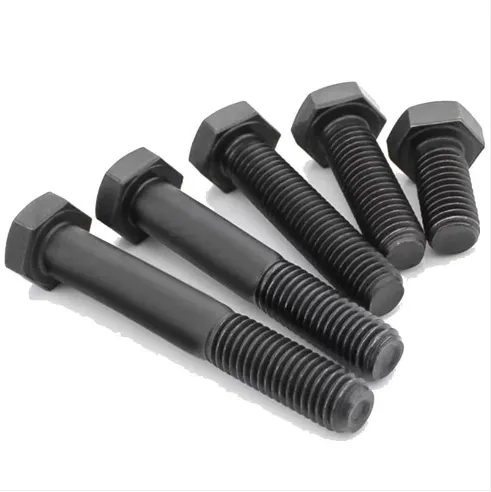extra thick washers
Дек . 17, 2024 04:59 Back to list
extra thick washers
Understanding Extra Thick Washers Applications, Benefits, and Considerations
In the world of mechanical engineering and construction, fasteners play a critical role in ensuring the structural integrity and longevity of constructions and machinery. Among the variety of fasteners used, washers are often overlooked yet are indispensable components. In particular, extra thick washers have emerged as a vital solution in various applications, providing enhanced load distribution and stability.
What Are Extra Thick Washers?
Extra thick washers are circular plates with a hole in the center, designed to fit over bolts or screws. Unlike standard washers, which are typically thin and used for light applications, extra thick washers offer additional strength and durability. These washers are made from various materials, including steel, stainless steel, plastic, and rubber, allowing for a range of applications across different industries.
Applications of Extra Thick Washers
1. Construction In construction, extra thick washers are utilized to support heavy beams, columns, and other structural elements. Their larger surface area helps to distribute the weight more evenly, reducing the risk of bending or breaking under load.
2. Automotive Industry In the automotive industry, extra thick washers are often used in high-performance applications, such as suspensions or engine mounts. They provide stability and help absorb vibrations, ensuring the reliability of critical components.
3. Heavy Machinery Equipment such as excavators, bulldozers, and cranes often require extra thick washers to handle the immense forces and stresses experienced during operation. These washers help to secure connections against loosening due to vibration and dynamic loads.
4. Marine Applications The marine industry benefits from extra thick washers, especially in securing components subject to harsh environmental conditions, such as saltwater corrosion and high winds. They provide enhanced protection and longevity for marine vessels.
5. Electrical Systems Inside electrical systems, extra thick washers can be used to mount heavy electrical components, ensuring they remain firmly in place over time, even with thermal expansion and contraction.
Benefits of Using Extra Thick Washers
extra thick washers

1. Load Distribution The primary advantage of extra thick washers is their ability to distribute loads over a larger area. This feature reduces the concentration of stress on specific points, which can prevent failures and prolong the lifespan of the connections.
2. Increased Durability Given their thickness, these washers are less prone to bending or deforming under pressure. This durability ensures reliable performance in demanding applications.
3. Vibration Resistance Extra thick washers can improve vibration resistance in assemblies, reducing the risk of fasteners loosening over time. This is particularly important in dynamic environments like automotive or aerospace applications.
4. Corrosion Resistance Depending on the material used, extra thick washers can provide excellent resistance to corrosion, enhancing their lifespan and reliability in harsh environments.
Considerations When Using Extra Thick Washers
While the benefits of extra thick washers are substantial, it is essential to consider a few factors when selecting them for a project
1. Material Selection The choice of material should be based on the specific environment and application. For instance, stainless steel is preferable in corrosive environments, while nylon washers may work better in applications needing electrical insulation.
2. Proper Sizing It is crucial to ensure that the washer is appropriately sized for the bolt or screw it accompanies. Oversized or undersized washers may not provide the desired load distribution and could lead to connection failure.
3. Torque Specifications When using extra thick washers, it is vital to adhere to the recommended torque specs for the accompanying fastener. Over-tightening can lead to deformation of the washer, negating its benefits.
Conclusion
Extra thick washers are a vital component in various industrial applications, offering solutions for load distribution, durability, and vibration resistance. Their unique properties make them suitable for heavy-duty applications across construction, automotive, marine, and electrical industries. By understanding their benefits and considerations, engineers and builders can select the appropriate washers for their projects, ensuring lasting performance and reliability.
Latest news
-
Reliable Axle Nuts Supplier | Quality & Precision Fasteners
NewsAug.23,2025
-
Durable Bolts for Lawn Mower Handle - Top Supplier & Manufacturer
NewsAug.22,2025
-
High-Quality Bolts for Lawn Mower Handle Supplier & Manufacturer
NewsAug.21,2025
-
Reliable Axle Nuts Supplier | High-Quality Automotive Parts
NewsAug.19,2025
-
Premium Wire Bolts Suppliers | Durable & Reliable Fasteners
NewsAug.18,2025
-
Leading Metric Wood Screw Companies & Manufacturers
NewsAug.17,2025
